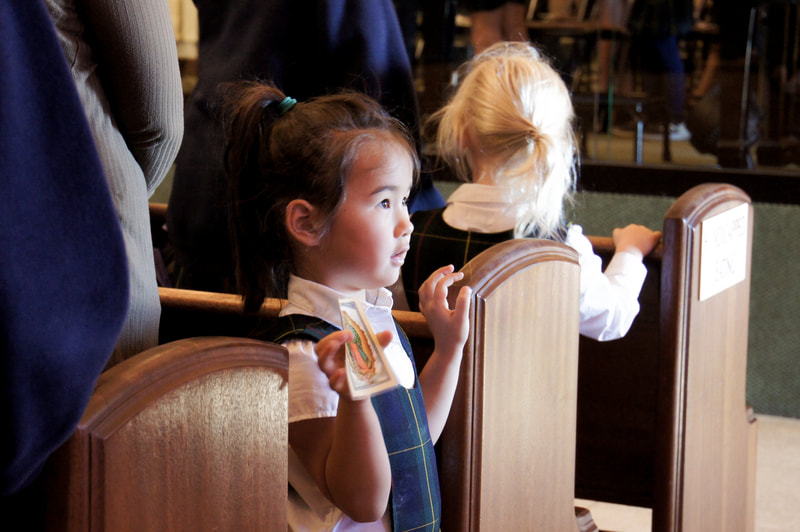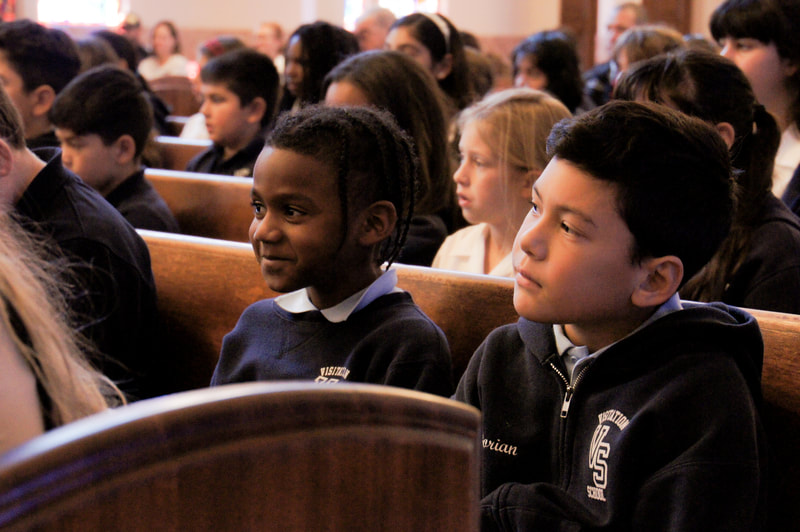Why Catholic School?
The Philosophy and Ministry of Catholic Education
In planning for the future of Catholic Education, a number of studies have proven helpful in determining the effectiveness of Catholic schools. The study of Catholic school effectiveness has been ongoing for a lengthy and consistent period of time. In comparison between the Catholic population and the general American population, many studies indicate that Catholic schools are generally more successful in producing students with the following:
- Higher academic achievement
- Better self-discipline
- Greater job success and occupational achievement later in life
- A more positive attitude toward other groups in society
- More disciplined work habits
- A greater likelihood of entering the colleges of their choice
- A more sustained life-long academic interest
- A more positive and hopeful view of the world
- A stronger commitment to socially acceptable social behavior
- A greater interest in the common good
- A more positive self-image
When graduates of Catholic schools have been compare with Catholic students graduating from public schools, these studies indicate that Catholic school graduates:
- Have a better knowledge of their faith
- Are consistently more committed to their ecclesial denomination
- Exhibit greater commitment to active parish life
- Achieve an affective and emotional bond with the church that survives the secular and often anti-religious influences in
modern society
- Attend church services more regularly and in greater numbers
- Pray more frequently
- Discuss issues of personal faith more openly
- Are less likely to sever church affiliation
- If they do leave the church, are more likely to return to the church at a later time in life
- Are more responsive to church teaching with regard to issues of social justice
Sources: Greeley-Rossi (1966); Greeley, McCready and McCourt (1976), Morrison and Hodgkins (1978), Coleman, Hoffer and Kilgore (1981), Fergurson (1983), Bryk and Hollan (1984), Gallup (1985), Coleman (1987).
In planning for the future of Catholic Education, a number of studies have proven helpful in determining the effectiveness of Catholic schools. The study of Catholic school effectiveness has been ongoing for a lengthy and consistent period of time. In comparison between the Catholic population and the general American population, many studies indicate that Catholic schools are generally more successful in producing students with the following:
- Higher academic achievement
- Better self-discipline
- Greater job success and occupational achievement later in life
- A more positive attitude toward other groups in society
- More disciplined work habits
- A greater likelihood of entering the colleges of their choice
- A more sustained life-long academic interest
- A more positive and hopeful view of the world
- A stronger commitment to socially acceptable social behavior
- A greater interest in the common good
- A more positive self-image
When graduates of Catholic schools have been compare with Catholic students graduating from public schools, these studies indicate that Catholic school graduates:
- Have a better knowledge of their faith
- Are consistently more committed to their ecclesial denomination
- Exhibit greater commitment to active parish life
- Achieve an affective and emotional bond with the church that survives the secular and often anti-religious influences in
modern society
- Attend church services more regularly and in greater numbers
- Pray more frequently
- Discuss issues of personal faith more openly
- Are less likely to sever church affiliation
- If they do leave the church, are more likely to return to the church at a later time in life
- Are more responsive to church teaching with regard to issues of social justice
Sources: Greeley-Rossi (1966); Greeley, McCready and McCourt (1976), Morrison and Hodgkins (1978), Coleman, Hoffer and Kilgore (1981), Fergurson (1983), Bryk and Hollan (1984), Gallup (1985), Coleman (1987).




